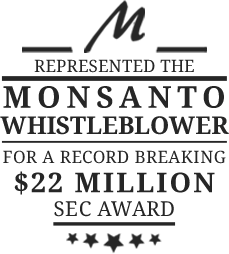








What Is the SEC’s Cyber Unit?
As cyber-based threats to retail investors become more common, the Securities and Exchange Commission (SEC)is working to fight back against these threats. As part of that effort, the commission recently developed a Cyber Unit.
Digital misconduct can affect retail investors in many serious ways, and the SEC is now prepared to investigate cyber threats and begin detecting them before fraudsters are able to run away with investor funds. Read on to learn more about the SEC’s Cyber Unit.
The Purpose of the Cyber Unit
Those using the Internet to commit fraud are able to hide behind the screen despite being involved in large-scale fraudulent operations.
Securities violations like selling unregistered securities, insider trading, stock manipulation, hacking into retail accounts, and coin pump-and-dump schemes are going to be the primary areas of concern for the SEC’s new investigative unit.
Eliminating ICO and DLT Misconduct
An ICO, or initial coin offering, is an unregulated way to raise funds for cryptocurrencies. Selling virtual currency to investors—such as the successful Filecoin—is very similar to crowdfunding. Programmers don’t have to sell their own stock and are able to avoid regulated sources of capital.
Coins are supposed to have an independent value outside of the virtual world, and there is usually a cap on how many coins will exist, which is why they are so appealing to many new investors.
The difference between cryptocurrencies and stocks is that investors who get in on an ICO do not have any ownership in the company. Stocks, on the other hand, do provide that sense of security. When ICOs do provide ownership, the SEC may require the company to adhere to all securities laws.
Distributed ledger technology (DLT) uses nodes (independent computers) to share, record, and sync transactions electronically, as opposed to a traditional ledger. Because the data here is decentralized, fraudsters are able to capitalize on weaknesses in the various places the data is stored. The SEC Cyber Unit will investigate such misconduct.
How the Cyber Unit Will Fight Back Against Securities Violations
The SEC Cyber Unit will also work to identify large schemes and detect fraudulent activity across the country through data analytics and, of course, technology. It will also focus on developing techniques that address and prevent cyber threats from affecting retail investors.
In addition, the SEC’s newly created Distributed Ledger Technology Working Group will study emerging uses of distributed ledgers within the financial industry in the hope of identifying potential misconduct before fraudsters have the opportunity to take advantage of investors.
Call an SEC Whistleblower Lawyer
If you have information about potential securities violations perpetrated online and are considering blowing the whistle on such misconduct, get in touch with a qualified SEC whistleblower lawyer at Meissner Associates today.
You can schedule your confidential tip evaluation by giving our office a call at 1-866-764-3100 or filling out the secure contact form we’ve provided below.
